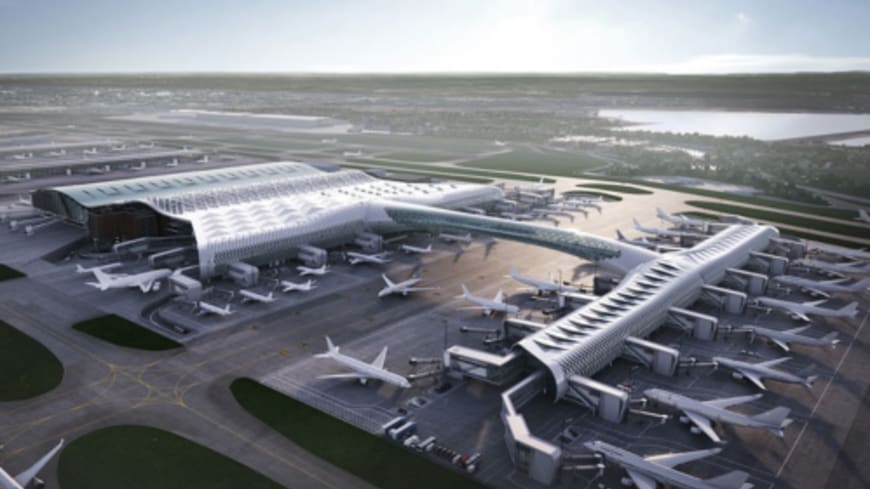The Chartered Institute of Logistics and Transport in the UK (CILT(UK)) acknowledges the renewed momentum around Heathrow’s future – but is clear that any expansion must be grounded in robust, up-to-date evidence and developed through a transparent, inclusive process.

The Government has now chosen Heathrow Airport Ltd.’s £33billion plan for a third runway, following a formal decision announced by Transport Secretary Heidi Alexander. According to the proposal, the runway and related infrastructure would be entirely privately financed, with no public money required, although the plan includes re-routing part of the busy M25 motorway.
While this appears to be an important step, CILT(UK) stresses that selection is not yet final: detailed design, consultation, a fit for purpose regulatory system, from the perspective of the airport’s users, and meaningful scrutiny are a long way from being completed, if indeed started in some cases. It is therefore more important than ever that the evaluation is robust and realistic, reflecting how much the aviation system has changed since earlier analyses.
Key points for CILT(UK):
The case for Heathrow expansion is no longer as clear-cut, given that other UK and London-area airports are adding capacity, where this is complemented by network developments.
There are a number of material differences between the market and operating environment set out in the Airport Commission’s report both between 2015 and now and perhaps more importantly for the future. There is a need for this to be recognised.
Increasingly, travellers from UK regions can connect to international markets without having to route through Heathrow, which expansion alone will not necessarily change.
The Government’s evaluation criteria, set out by the Secretary of State, need to be applied objectively — based on good evidence, not optimistic and unrealistic forecasts.
Any go-ahead should not come at the expense of other approved airport projects in the UK, especially given environmental commitments.
There is a strong need for a Comprehensive Impact Assessment, with assumptions demonstrably realistic about traffic, costs, demand and environmental impacts.
For the proposed increase in aircraft movements (ATMs), CILT(UK) insists on clarifying how runway or operational constraints might limit the actual number of new slots that can be delivered.
Chris Tarry, Chair of the CILT(UK) Aviation Policy Group, said:
“We acknowledge the Government’s decision, but we must not rush. The actual final form of the proposed expansion must stand up to proper scrutiny – not just politically, but economically, operationally and environmentally.
“All voices must be heard – airlines, regional airports, local communities, cargo interests – in a process that is genuine and transparent. A future Heathrow needs to be affordable for users, sustainable, deliverable, where there are demonstrable benefits the UK as a whole.”
CILT(UK) also calls for consistent national aviation policy, especially on surface access, slot allocation, and cargo operations, so that Heathrow’s expansion complements rather than undermines broader UK airport development.
In conclusion, while the Government’s move is welcome progress, the Institute reiterates that the path ahead must be rigorous and inclusive if expansion is to deliver long-term benefits for passengers, the industry and the economy.

Heathrow expansion plans move forward with 2035 target
The government has confirmed that Heathrow Airport Limited's proposal will form the basis for expanding Britain's busiest airport with a third runway, aiming for operations to begin by 2035.

Arora Group unveils enhanced Heathrow West expansion plan
The Arora Group has submitted updated proposals for its Heathrow West expansion scheme, claiming significant advantages over rival plans from Heathrow Airport Limited as the government prepares to make a final decision by the end of November.

Following MP’s report, CILT(UK) highlights need for balanced solutions on airport growth and environment
The Chartered Institute of Logistics and Transport in the UK responds to the Environmental Audit Committee’s latest report on airport expansion and climate targets.